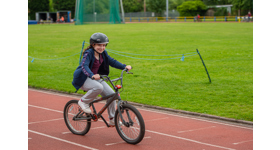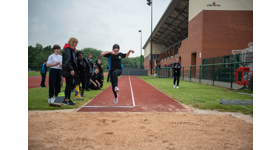Search Results For Data and learning
Data and learning: Children and young people
Less than one in five young people (between the ages of 5-15) are moving for 60 minutes every day. It’s important to build positive attitudes around physical activity early in life to act as the foundation for a healthy life. Families, particularly parents and care-givers, play a big role in shaping children’s attitudes and behaviours toward physical activity. Here you will find the latest research related to the physical activity and sport levels, motivations and barriers of children and young people.
69 results found

45.6% of children and young people in Greater Manchester meet Chief Medical Officer guidelines and achieve an average of 60 minutes or more of physical activity a day. Whilst 32.2% are failing to achieve 30 minutes of physical activity a day.

In Wigan just 44.6% of children and young people are achieving an average of 60 minutes of physical activity a day. This means that almost half are not meeting Chief Medical Officer guidelines.

In Trafford just 44.0% of children and young people are achieving an average of 60 minutes of physical activity a day. This means that almost half are not meeting Chief Medical Officer guidelines.

In Tameside just 51.1% of children and young people are achieving an average of 60 minutes of physical activity a day. This means that almost half are not meeting Chief Medical Officer guidelines.

In Rochdale just 44.4% of children and young people are achieving an average of 60 minutes of physical activity a day. This means that almost half are not meeting Chief Medical Officer guidelines.

In Bolton just 52.7% of children and young people are achieving an average of 60 minutes of physical activity a day. This means that almost half are not meeting Chief Medical Officer guidelines.